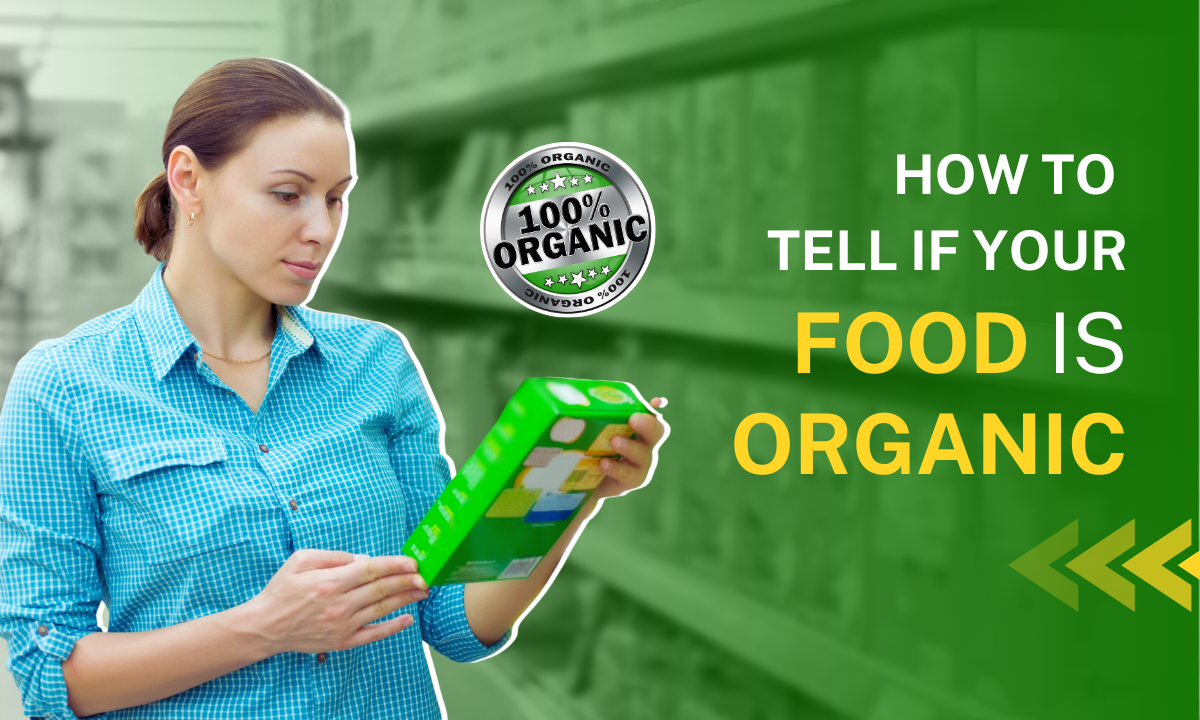If you’re trying to make better food choices for your health and the environment, you may have considered organic foods. But how do you tell if a food is truly organic or not?
Labels
Organic food labels are the perfect way to ensure that the food you are purchasing is truly certified organic. Mostly these labels will be displaying the words “certified organic” or “100% organic” to alert you to the fact that the food has been verified by an accredited certifying agency. It is also a good idea to look for the name of the certifying agency.
Country of Origin
In addition to looking for organic labels and certifying agencies, you can also check the country of origin for the food. Organic foods that originate in the United States are regulated by the National Organic Program and must meet certain standards and requirements. If the food is imported, it must meet the same standards and requirements of the country it originated from.
Ingredients
Another way to tell if a food is organic is to check the ingredients label. If a food is certified organic, the ingredients list must state that the ingredients are organic. All ingredients must be certified organic, as foods with only some organic ingredients cannot be labeled as organic.
Checking with the Producer
If you’re still unsure whether a food is organic or not, you can always contact the producer directly. Most producers would be proudly willing to answer questions about their products.
Organic Standards in the US
The organic standards describe the specific requirements that must be verified by a USDA-accredited certifying agent before products can be labeled USDA organic.
Crops
The organic crop production standards require that:
• Land must have had no prohibited substances applied to it for at least 3 years before the harvest of an organic crop.
• Soil fertility and crop nutrients will be managed through tillage and cultivation practices, crop rotations, and cover crops, supplemented with animal and crop waste materials and allowed synthetic materials.
• Crop pests, weeds, and diseases will be controlled primarily through management practices including physical, mechanical, and biological controls. When these practices are not sufficient, a biological, botanical, or synthetic substance approved for use on the National List may be used.
• Operations must use organic seeds and other planting stock when available.
• The use of genetic engineering, ionizing radiation and sewage sludge is prohibited.
Similar standards are applicable for meat and poultry products.
Organic Certification in India
Agricultural and Processed Food Products Export Development Authority (APEDA), Ministry of Commerce & Industries, Government of India is implementing the National Programme for Organic Production (NPOP).
The programme involves the accreditation of Certification Bodies, standards for organic production, promotion of organic farming and marketing etc. The NPOP standards for production and accreditation system have been recognized by European Commission and Switzerland for unprocessed plant products as equivalent to their country standards. With these recognitions, Indian organic products duly certified by the accredited certification bodies of India are accepted by the importing countries. APEDA is also in the process of negotiation with Australia, South Korea, Taiwan, Canada, Japan etc.
Conclusion:
It is important to note that there is a difference between certified organic (100% organic) and organic (organically grown) foods.
Certified organic foods are those that have been produced and processed in accordance with specific standards and regulations set by the certifying agency.
Organically grown foods, on the other hand, are foods that have been produced without the use of synthetic pesticides, herbicides, or fertilizers, but may not have been certified. They may contain some ingredients that may not be completely organic.

